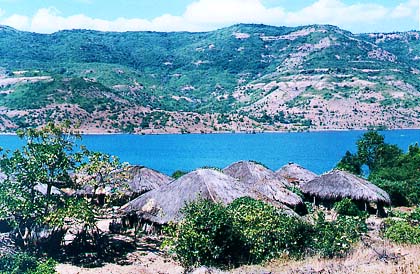
|
Village: Gadale Taluka: Mulshi District: Pune |
Centre for Cooperative Research in Social
Sciences
(CCRSS, Pune, Maharashtra, India)
The CCRSS experiments with methods and practices of research prompted by three epistemological perspectives that academic and educational institutions generally do not motivate or can not afford, sometimes even do not permit or simply discourage.

|
Village: Gadale Taluka: Mulshi District: Pune |
The first methodological perspective consists in focusing on the link of action and research. This is a necessary dimension of any effective commitment of knowledge and scholarship to social transformation. Links between action and research are to be woven in terms of an organic and dialectic interaction between academic methods and categories of cultural anthropology, on the one hand, and, on the other hand, actual processes of development, strategies of social action and modalities of cultural dynamics. No efficient social intervention can overlook this interdependence.
At the ground of this focus and emphasis are two convictions. First, we perceive human reality not as a given essence but as action and history. Second, as a consequence, in human and social sciences, the subjective intentions of the actors ought to be the object of knowledge together with and no less than their actual practices and conducts. The intentionality of the actors should be granted a priority status. (See: A microsystem of communication) This is the surest way towards socially relevant and useful knowledge in social and human sciences once we are looking for a knowledge leading the actors towards effective social transformation and the social scientist towards a proper insight of the actual social processes.
The second methodological concern relates to the processes and systems of social and symbolic communication. These processes are determinant parameters not only of the systemic structuring of the social fabric as a totality. We specifically focus on communication processes in the context of interventions for social transformation and of collective exercises of self-investigation aiming at the creation of alternative reflexive knowledge. (See: Figures of communication)
We consider communication as the milieu itself of production of knowledge whether we deal with methods of research-action or scholarly pursuits of anthropological knowledge. The forms of relation prevailing between the social scientist and the social actor are our privileged concern. As a consequence, the link of research and action often results in the study taking the shape of a collective, reflexive and prolonged process in which the research-worker -- pole of initiative, the role of which is to monitor the reflexive process -- and the social agent -- whose action and intentionality are the subject-matter of the investigation -- are cooperatively involved, each of them in their particular capacity.
Cooperation is our catchword and permanent yardstick. (See: Experiments with cooperative research) By "cooperation" we mean to look for a knowledge which simultaneously leads the actors towards effective social transformation and the social scientists towards a deeper insight of the actual social processes. A significant condition for the investigations to prove adequate to that objective is their reliance on communication processes. This is so, first, with regard to the rapport that social interventionists entertain with the population whom they address; second, in terms of the qualified relation that prevails between the research-worker and the social actors concerned; third, in terms of the rapports that the social actors maintain among themselves, individually and collectively.
Cooperative communication stands as the ground of the production of knowledge that all parties look for.
Return to home page of Centre for Cooperative Research in Social Sciences (CCRSS, Pune)